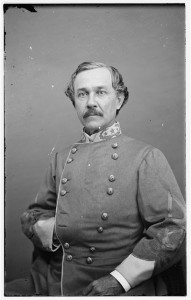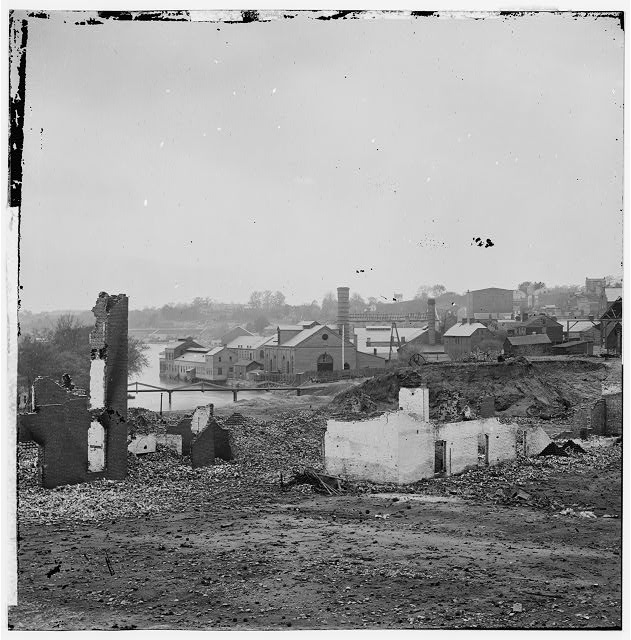Big surprise – the South’s war economy is still going great guns.
From the Richmond Daily Dispatch October 28, 1863:
Wanted–1,000 negroes.
–We wish to hire for the year 1864, one thousand Negroes, to be employed at the Tredegar Iron Works, Richmond, and at our Blast Furnaces in the counties of Rockbridge, Botetourt, and Alleghany, and Collieries in Goochland and Henrico, for which we are willing to pay the market prices.
Having made arrangements for a supply of provisions and clothing, we can safely promise that servants entrusted to us shall at all times be well fed and clothed.
Our furnaces and other works are located in healthy sections of the country, remote from the enemy’s line, offering unusual inducements to the owners of negroes to send them to us.
We would be glad to hear from those whose hands we have hired this year as early as possible, as to rehiring them another year, and whether they desire that the hands shall be sent home or retained under our protection at the end of the year.
J R Anderson & Co,
Tredegar Iron Works, Richmond, Va.
Tredegar was hiring (and certainly paying the wages to the slave owners); here’s more evidence of the skyrocketing prices (and depreciating currency?) for those who want to buy. From the same issue
High prices.
–Negroes are commanding enormous prices in this market at this time. Yesterday a negro fellow was sold by private sale for $7,000. At the auction rooms three women and two men brought about $24,000, one boy sold for $4,200, and several ordinary field hands brought over $4,000 each. The scarcity of labor is driving negroes up rapidly, and will continue to do so until after the war is ended.
Graduated 4th in his West Point class of 1836, Joseph Reid Anderson joined Tredegar in 1841 and became its owner in 1848. “When the Civil War came, the Tredegar Iron Company emerged as the industrial heart of the Confederate States of America. Using slave and free labor, Anderson supervised ordnance and munitions production through most of the war.” Mr. Anderson also served in the Confederate army until he was wounded at Frayser’s Farm on June 30, 1862:
General Anderson resigned his army commission on July 19, 1862, and served the Confederate war effort in the Ordnance Department until the evacuation of Richmond on the night of April 2–3, 1865. As the retreating Confederate troops burned many of the munitions dumps and industrial warehouses that would have been valuable to the North, Anderson reportedly paid over fifty armed guards to protect the Tredegar facility from arsonists. As a result, the Tredegar Iron Works is one of few Civil War era buildings in the warehouse district that survived the burning of Richmond.


